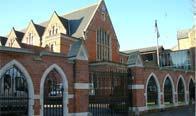Fees Should Support Poorer Families Not Create “Exclusive Clubs”
Charity Commission’s guidelines advises private schools to offer subsidised places
Charity Commission’s guidelines published this week advises private schools that they will be expected to offer subsidised places to children from families who cannot afford to pay fees. Schools that do not abide by the guidelines face losing their charitable status and therefore tax breaks and will not be able to restart as a business.
The schools must prove their public benefit in order to keep their charitable status - meaning that they have to offer a benefit to wider society, not just those that attend the schools.
Charity Commission Chairwoman Dame Suzi Leather said, "Educational charities bring a range of benefits to society. Charities such as museums, theatres, independent schools, hospitals and care homes can legitimately charge fees, but cannot be - in effect - exclusive clubs. What we want to ensure is that they give access to a sufficiently wide section of the public."
The guidelines are still in draft form and have been published for consultation. They note "Where a charity's charges effectively restrict the charitable benefits it offers to people who can pay, then it must provide other opportunities to benefit people who cannot afford those charges, including people in poverty.
"This does not mean that charities necessarily have to provide free or subsidised services, although clearly that can help and is one effective way of meeting the requirement."
A number of suggestions have been made by the commission over how independent schools can offer benefits to the community in order to keep their charitable status. Schemes could see private schools offer support to state schools in their local vicinity, teachers being lent to neighbouring comprehensives or allowing state pupils in for certain lessons.
March 17, 2008
Related links
|
